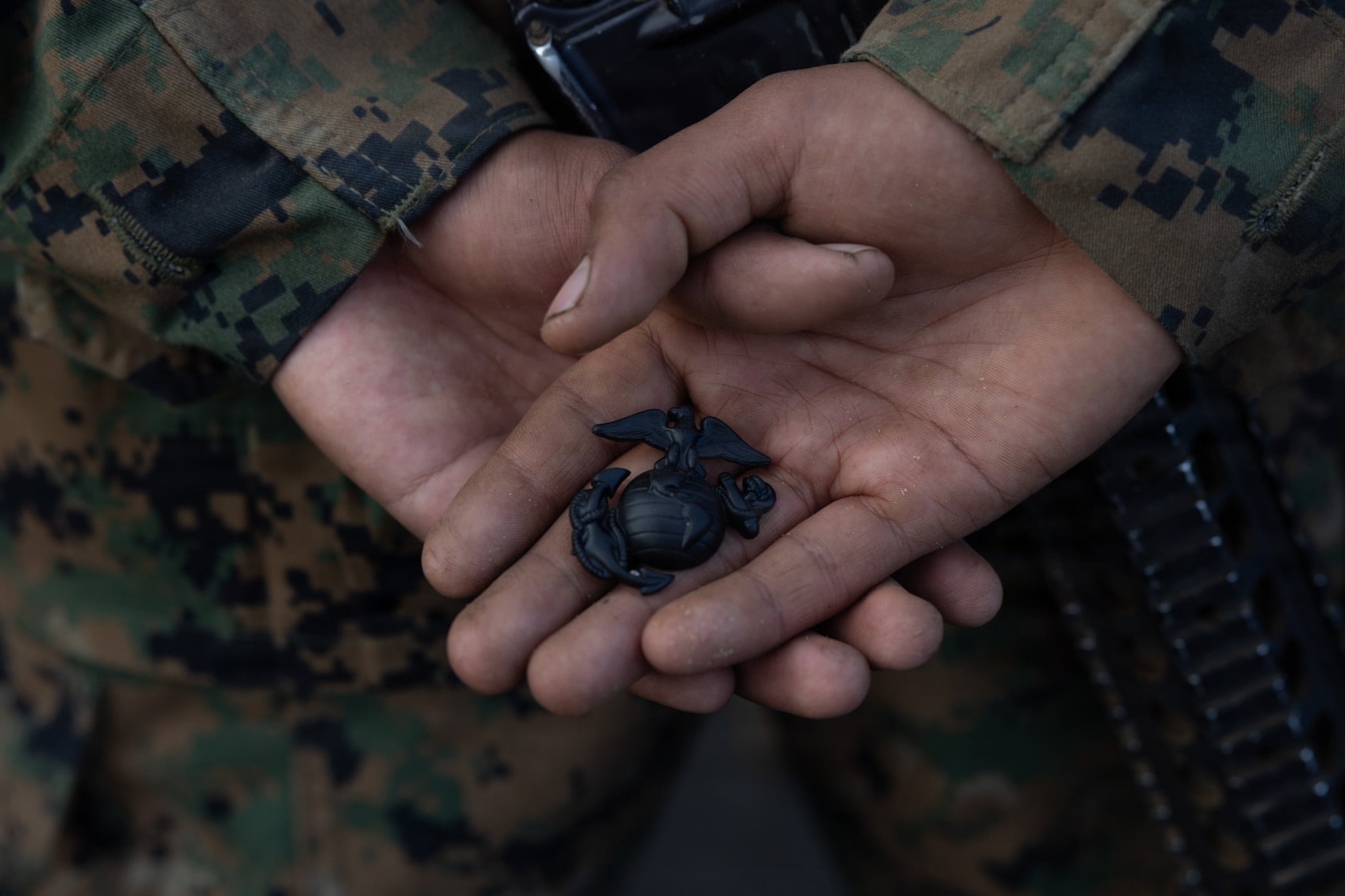The commanding officer of the U.S. warship Forrest Sherman was fired in January, ostensibly for taking home a seized enemy rifle that he intended to turn into a trophy for his ship’s wardroom. But that’s far from the whole story regarding what went down aboard the guided-missile destroyer under the leadership of Cmdr. Frank Azzarello.
That old AK-47 was part of a massive cache of weaponry that Azzarello’s sailors seized from a dhow in the Middle East in late 2019.
U.S. Central Command said the materiel was believed to be from Iran and headed for Houthi rebels in Yemen.
It was a crowning achievement for Azzarello, who officials say took command of the ship nine days before its September 2019 deployment and whose performance evaluation in the spring of last year predicted he would “EXCEL IN MAJOR COMMAND!”
But behind the CENTCOM press releases, Azzarello’s rising star and Forrest Sherman’s can-do mission capability, the officer had created “a command climate of harassment and fear” aboard the guided-missile destroyer, according to a command investigation obtained by Navy Times.
RELATED
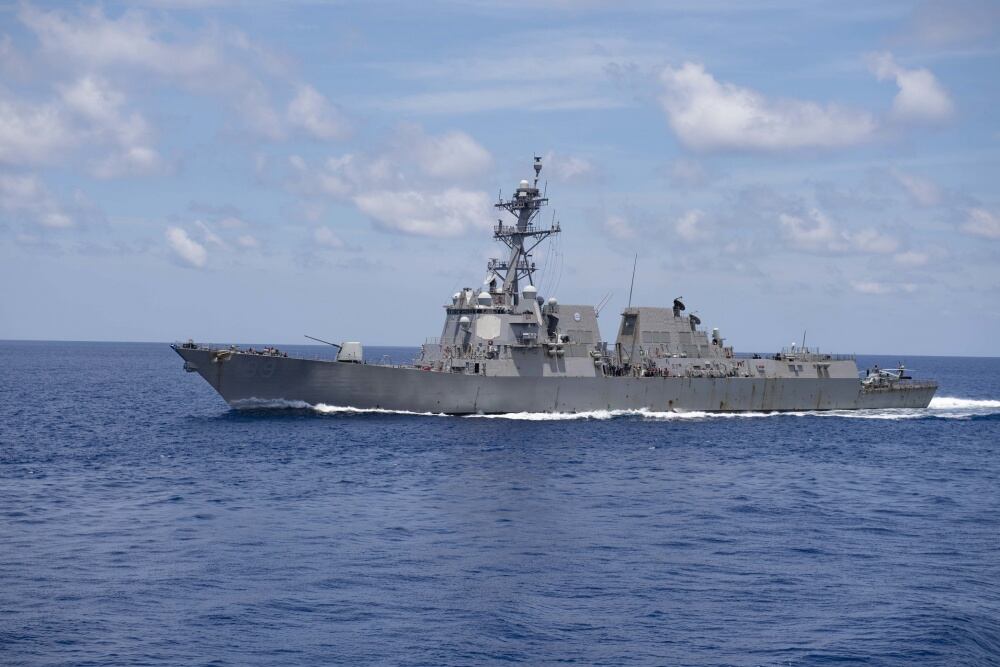
The first endorsement of the Destroyer Squadron 28 investigation came on Jan. 26, a day before Azzarello was fired.
It found that Azzarello belittled some officers, called others names, mocked the voices of female members and overused letters of instruction with junior officers, allegedly in the name of booting underperformers off his ship.
“I have seen officers called idiots, retarded or useless wastes,” one anonymous crew member wrote in a command climate survey cited in the investigation.
“Get your hands out of your pockets when you speak to me, you son of a bitch,” one officer recounted Azzarello saying, according to the investigation.
A junior officer who Azzarello detached for cause in 2020 told investigators that Azzarello “gives SWOs a bad name,” and that he was “Holly Graf-like,” a reference to a warship captain who was fired in 2010 for abusive behavior.
But while some Forrest Sherman members described a tyrannical state of affairs under Azzarello, his civilian attorney, Timothy Parlatore, said Monday that the case against his client isn’t as clear-cut as the investigation would suggest.
“Yeah, he used rough language,” said Parlatore, a former naval officer who said he and Azzarello attended SWO school together in the early 2000s. “Nothing any rougher than when I was a junior officer, that my commanding officer used with us, or that anybody else has used in the history of the United States Navy.”
The enemy-gun-turned-wannabe-war trophy, however, is not in dispute.
A separate Naval Criminal Investigative Service probe determined that Azzarello did take home the weapon with the aim of turning it into a war trophy for his ship but failed to follow military guidelines for such an endeavor, Parlatore said.
“When (NCIS agents) found it in his garage, it was sitting next to the piece of wood he had polished up to mount it,” Parlatore said.
“My goal of turning it into a plaque is something that is permissible if I had followed the proper procedures and regulations,” Azzarello later said in a statement at his disciplinary hearing in April. “It was a poor decision that I truly regret, but again my intent was to only commemorate a difficult deployment and difficult year for my ship.”
But at the same non-judicial punishment hearing, Azzarello was defiant in response to the conduct unbecoming an officer charge he faced for the language he used with his subordinates.
In that NJP statement and in a command assessment he filed to the higher-ups 90 days into his stint leading the ship, Azzarello described a litany of empty billets, inexperienced crew members and a ship with questionable material readiness as it undertook its second deployment in a year in September 2019.
Some of those factors are the same ones cited in the probes that followed the 2017 fatal ship collisions that killed 17 sailors aboard the destroyers Fitzgerald and John S. McCain.
Azzarello took command of the ship Sept. 4, 2019, less than two hours before it left Virginia to escape Hurricane Dorian.
All told, he had four hours of turnover time with his predecessor and the ship deployed less than two weeks after he took charge, according to records.

Azzarello told investigators of responding to the 2012 collision of the U.S. destroyer Porter with a supertanker in the Persian Gulf, and how he ran the basic division officer course for a year following the fatal Fitzgerald and John S. McCain collisions.
“I admit that I am passionate, intense, aggressive, sarcastic, direct and sometimes use colorful language,” Azzarello said in a statement at his NJP hearing. “I am painfully aware of the potentially deadly impacts of substandard watchstanding.”
But the time when it was acceptable to berate subordinates has passed, according to Bradley Martin, a retired SWO who spent two-thirds of his 30-year career at sea.
“This kind of behavior is clearly inappropriate, and while it was at one point relatively common in the surface force for people to talk this way, after all the things we’ve learned about command climate, it really shouldn’t be now,” said Martin, now a senior policy analyst and director of the Institute for Supply Chain Security at Rand Corp.
“Holding people to standards is essential, but simply berating them just demotivates them,” he added. “That doesn’t improve, it just makes them feel bad.”
To Martin, the Forrest Sherman situation raises questions about whether higher echelons are monitoring command standards, especially when a given ship is getting the mission done.
“It is possible that good performance or a ship performing well causes the chain of command to overlook some kinds of behavior, but that’s a very short-term thing,” he said. “It trades short-term satisfaction of a requirement … for the long-term health of the force —the equivalent to deferring maintenance.”
The names of the complainants and those alleging wrongdoing against Azzarello are redacted in the publicly released copy of the command investigation.
U.S. 2nd Fleet spokesman Cmdr. Ashley Hockycko said in a statement Monday that the Navy holds its COs to high standards regardless.
“Commanding officers go through a rigorous screening, selection process and training pipeline before assumption of command,” she said. “When they fall short of the standards of command, the Navy holds them accountable.”
Azzarello was relieved of command on Jan. 27, roughly a week before he was scheduled to relinquish the ship via a traditional change-of-command ceremony.
He ultimately accepted nonjudicial punishment for charges related to the war trophy and how he handled his crew, receiving a letter of reprimand in the process, according to Parlatore.
Nearing the 30-year mark of his career, Azzarello is now assigned to a staff job with Naval Surface Forces Atlantic.
RELATED
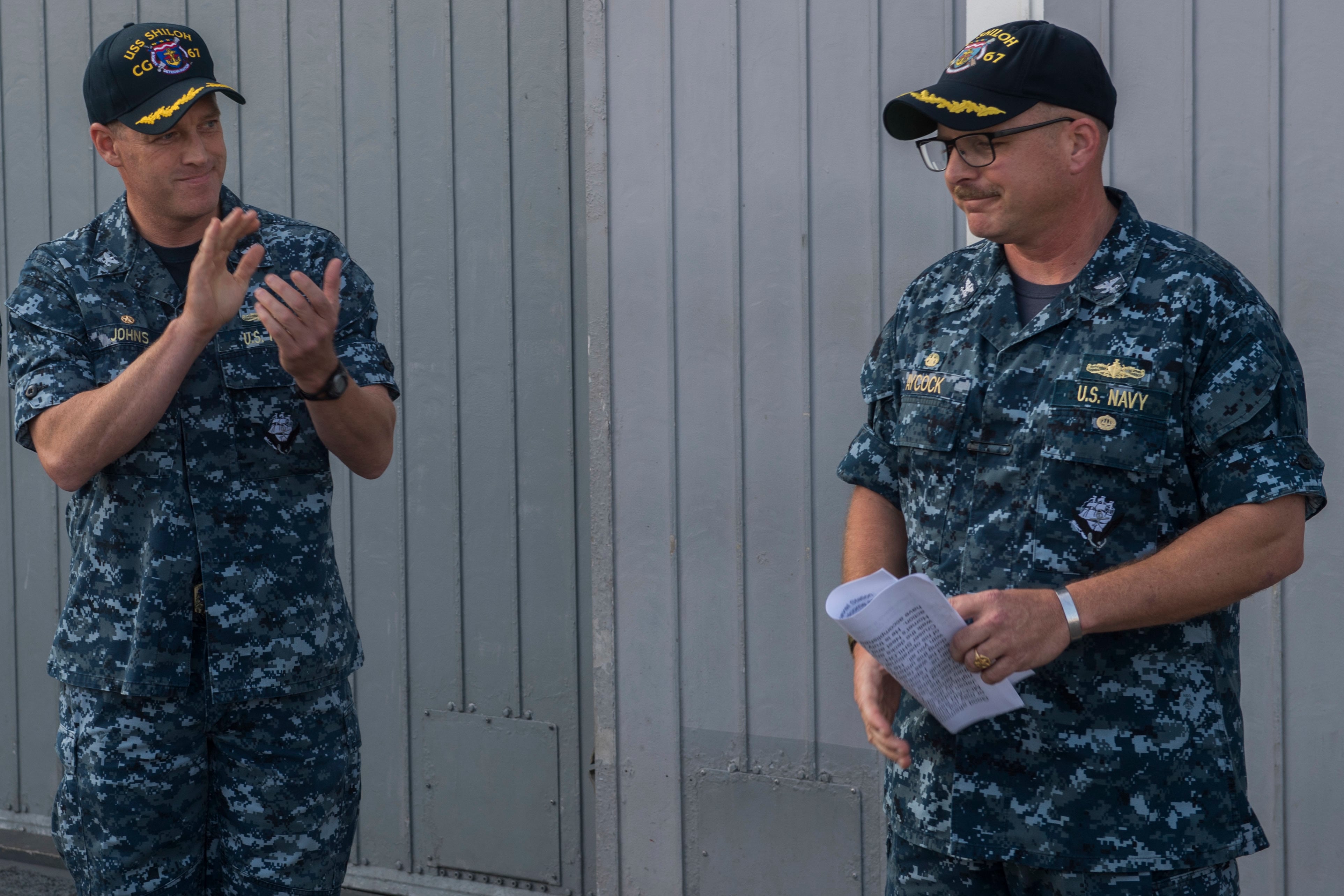
‘USELESS/STUPID’
Complaints about Azzarello’s leadership were initially made to the Naval Inspector General in July 2020, but they were not referred for action until four months later “because the IG used an incorrect email address,” according to the command investigation.
Among other things, the IG complaint alleged that Azzarello “verbally abused crew members and referred to division officers and department heads with terms such as ‘f---ing retards’ and ‘little son of a bitch,’” the investigation states.
Other officers “alleged that CDR Azzarello called them or others a ‘f---ing retard’ or ‘f---ing retarded’ or just ‘retarded,’ the investigator wrote.
One officer said it was “part of his regular vocabulary,” while another alleged being called “useless/stupid” as well.
At least one officer contended that Azzarello used “idiot and retard in a joking manner.”
The ship’s command climate survey revealed similar issues.
“On the bridge, how your watch will go depends on the mood of the CO,” one crew member wrote in the anonymous survey. “Because of this, the first and most important turnover item between watches is the captain’s mood. Not contacts, casualties or tasking.”
Another survey comment alleged Azzarello called junior officers “overall mistakes.”
“CDR Azzarello did not recall any specific instances during which he used this type of language, but did note that he regularly calls his sons ‘retards’ and that it was possible he used that word in a joking, playful manner, not intended to be abusive,” the investigation states.
One officer alleged that Azzarello “continually belittled him” after he said, “Roger that, sir,” when making a report.
“Specifically, for the next several months, any time that CDR Azzarello saw him, he would scream ‘Roger that Mr. Seymour,’” the investigation states.
Azzarello denied such allegations.
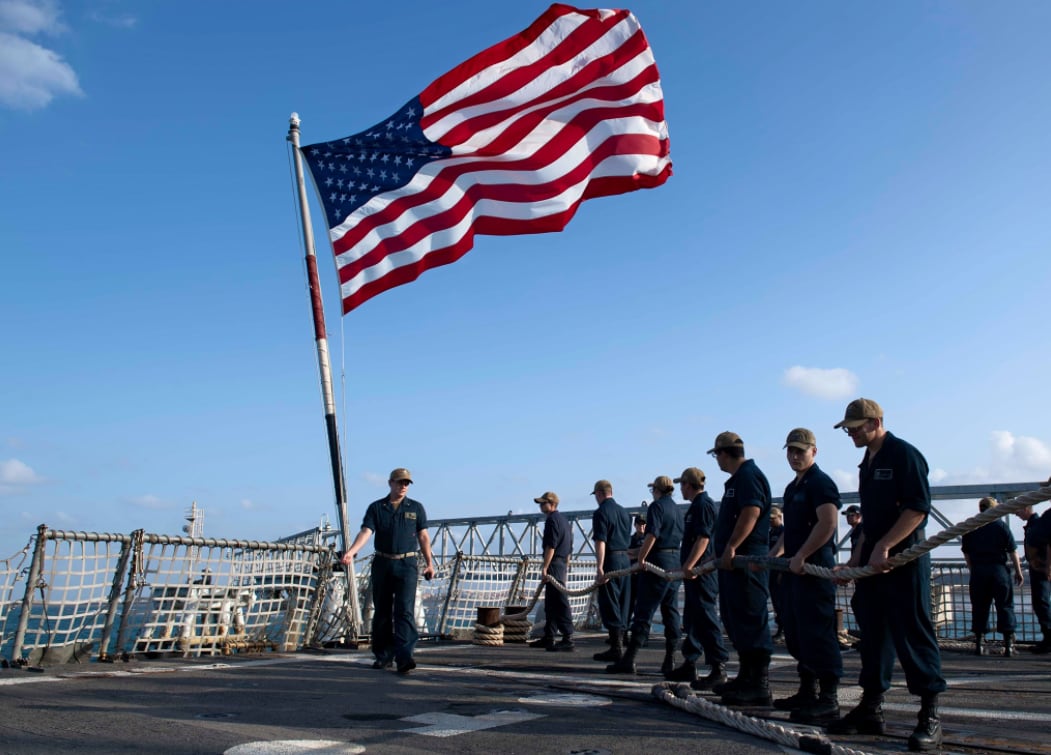
The ship’s department heads “noted no significant issues, with several noting that the ship was a professional work environment,” the investigator wrote.
One division head “did observe some name calling but indicated that it did not cross professional lines,” while another noted that Azzarello “likely said some things he should not have.”
In the end, the investigator found that Azzarello used abusive and offensive language, ridicule and demeaning insults in ways that “crossed professional lines and constituted harassment.”
“While CDR Azzarello’s language choices may have sometimes been intended to be humorous and may not have always been intended to be abusive, his words were utterly offensive to most of the officers on the receiving end, and I believe that they would be considered so by any reasonable person in a professional environment,” the investigator wrote. “Ultimately, his behavior contributed to a hostile and offensive work environment, particularly on the bridge for division officers.”
‘PASSION BORDERING ON ANGER’
A comment in a Forrest Sherman command climate survey cited in the investigation alleged that Azzarello at one point “almost physically assaulted a junior officer” over there not being enough beer for all crew members for an upcoming event.
“Three junior officers recounted an event on the bridge during which CDR Azzarello allegedly leaned over and raised his hand when reacting to a report from the Morale Welfare and Recreation (MWR) Officer … that there was not enough beer to support a shift in policy to allow crew members 18 years and older to drink,” the investigation states.
According to that report, the female officer “believed CDR Azzarello was going to punch her, and two officers on watch who observed it … believed it looked the same.”
Instead, Azzarello kicked the MWR officer off the bridge.
He told investigators he did not recall the specifics of that particular incident.
Three female Forrest Sherman officers also alleged that Azzarello “belittled their voices” at points.
One alleged that the CO made fun of her “1MC voice,” while another “alleged that CDR Azzarello told her he hated the sound of her voice.”
A third officer “alleged that CDR Azzarello told her he didn’t like the high pitch of her voice and to lower it,” according to the investigation.
One of them also said Azzarello “told her she needed smaller coveralls to fit in with the other females.”
“CDR Azzarello did not recall commenting on any of his female officers’ voices,” the investigation states, adding that he also didn’t recall addressing the one officer’s coveralls.
The former CO did note that the coverall officer “was petite and sometimes looked unkempt.”
“He also recalled giving her a hard time about blousing her coverall pant legs,” the investigator wrote.
The investigator substantiated those allegations and wrote that they constituted harassment.
The investigation also chides Azzarello’s No. 2, Cmdr. Damon Bridges, for not pushing back on such behavior and recommends that he not be allowed to “fleet-up” to CO of Forrest Sherman.
The anonymous IG complaint against Azzarello also accused him of assault while he was serving as executive officer of Vella Gulf before arriving at Forrest Sherman.
RELATED

During the summer of 2018, Azzarello “repeatedly poked” the ship’s ordnance officer “in the collarbone area while alone in his cabin following an issue with preparations for a maintenance spot check.”
The officer later “noted that the area was sore and tender following the alleged interaction.”
Neither of Azzarello’s COs on Vella Gulf were aware of the incident, according to the investigation, but one former CO, Capt. Robert Thompson, recalled speaking to Azzarello about his “passion bordering on anger.”
The investigator concluded that Azzarello lost his temper during that encounter, and that “poor anger management skills” contributed to the outburst.
No disciplinary action was recommended against Azzarello for this alleged assault because the statute of limitations precludes nonjudicial punishment and “court-martial proceedings would be inappropriate based on details of the allegation.”
“I do recommend that CDR Azzarello be ordered to attend an anger management course at the earliest opportunity,” the investigator wrote.
‘UNNECESSARY LEVEL OF MISTRUST AND FEAR’
The investigator found that Azzarello issued at least 46 Letters of Instruction, or LOIs, used to inform an officer of shortcomings while offering a path for improvement.
Fifteen of those were placed in detachment packages or in packages for removing junior officers from the SWO pipeline, according to the investigation.
Azzarello told investigators that the ship’s former CO, as well his former captain aboard the warship Vella Gulf, “emphasized the use of LOIs as a tool as well.”
“CDR Azzarello noted that he was concerned about getting his ship to success and making sure performance issues were well documented without a strong supporting cast,” the investigation states.
Still, Azzarello “excessively” used LOIs and “overemphasized the possibility of removing officers from his ship,” the investigator wrote.
“In May 2020, following apparent issues on watch, one division officer … recorded a counseling session during which CDR Azzarello explains how he uses LOIs and other actions to remove an officer from the ship,” the investigator wrote.
“Multiple officers alleged that CDR Azzarello threatened to fire, detach or remove them,” the investigator added.
Such LOIs were fired off repeatedly, limiting some officers’ ability to right their shortcomings, with one division officer receiving three LOIs over four weeks, according to the investigation.
Two department heads were also placed on limited duty during Azzarello’s tenure “for mental health issues and suicide-related behavior,” the investigation states.
Combined with the ship’s “higher than average number” of wannabe SWOs getting kicked out or leaving the pipeline, along with other unplanned officer losses, all those LOIs lessened Azzarello’s efforts to drive high standards and improve performance, according to the investigation.
“Instead, it created an unnecessary level of mistrust and fear in portions of his wardroom, contributing to an undesirable hostile work environment,” the investigator wrote.
The command investigation makes no comment on whether Azzarello’s LOIs were warranted based on the shortcomings they addressed.
At his NJP hearing, Azzarello defended his use of LOIs and his “strict compliance to established procedures on the bridge.”
“After a thorough investigation, there was not a single LOI that I issued that was determined to be unwarranted or factually deficient,” he said at the disciplinary hearing. “There was not a single non-attain that was later determined should have been qualified.”
‘THE STRESS LEVEL ONBOARD’
While the investigation into Azzarello focused on how he treated his officers, it also reveals troubling insights into the kinds of readiness issues that have plagued the surface fleet for years.
In a December 2019 command assessment written 90 days after he took charge, which is included in the investigation, Azzarello noted several familiar manning and material challenges.
He had several gapped billets and was without a chief logistics specialist, a chief gunner’s mate, a chief fire controlman and a chief quartermaster, according to his memo.
“My GSCS (Top Snipe) billet has been gapped for twelve months with no relief in sight,” he wrote. “Additionally, during my tine onboard I have not had a (Chief Gas Turbine System Technician) within my Engineering Department.”
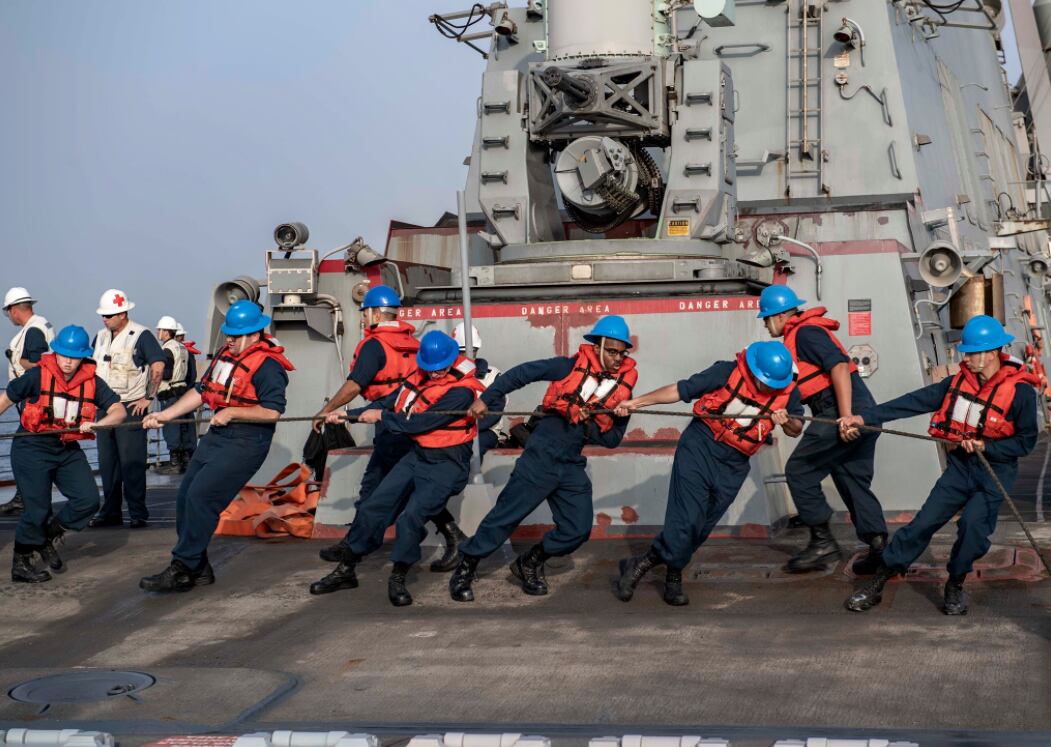
Forrest Sherman had returned from its most recent deployment in December 2018 and then deployed again nine months later without any maintenance phase, he wrote.
Azzarello was also concerned that his crew wasn’t adequately prepared for this latest deployment as there had been a 22 percent turnover since March 2019.
The ship and its crew had been preparing for a deployment to U.S. 6th Fleet, but plans changed and he questioned whether he had enough qualified sailors, citing “the lack of depth” in watchstanding and gun qualifications, to operate in the testier Middle Eastern waters of U.S. 5th Fleet.
He also expressed concerns about the mental health of some of his sailors and the stress of two deployments in a year.
“This year alone FORREST SHERMAN has had eleven sailors diagnosed with depression/anxiety, nine sailors placed on (limited duty) for adjustment disorder, and five sailors with suicidal ideations,” Azzarello wrote. “The possibility of a second extension of our deployment has increased the stress level onboard, which my leadership team has been tackling with discussion, deck plate leadership, and a focus on caring for our sailors.”
Geoff is the managing editor of Military Times, but he still loves writing stories. He covered Iraq and Afghanistan extensively and was a reporter at the Chicago Tribune. He welcomes any and all kinds of tips at geoffz@militarytimes.com.










